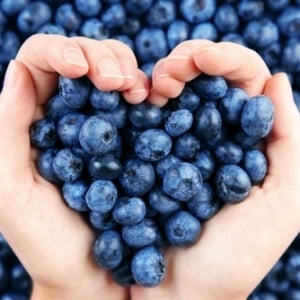
Scientists from Tufts University and the University of Maryland, exposed rats to radiation in order to induce behavioural and neuronal effects that mirror those observed during the natural process of ageing.
Previous research has shown that exposure to a radioactive iron source results in a decline of a range of cognitive functions, including motor performance, spatial learning and memory.
These results have implications for diseases associated with decline in cognitive function, such as Parkinson’s and Alzheimer’s diseases. The latter is the most common form of dementia and currently affects over 13 million people worldwide.
How the research was done
The new study, published online ahead of print in the journal Neurobiology and Aging (doi: 10.1016/j.neurobiolaging.2006.05.031), reports that rats fed a diet supplemented with either strawberry or blueberry extracts for eight weeks before exposure to the radiation were protected from some of the reductions in brain function.
And interestingly, the high-energy and charge particles found in the radiation are also found outside the earth’s magnetic field, suggesting, say the researchers, that astronauts on a manned-mission to Mars may also benefit from daily berry supplements.
The researchers, led by Barbara Shukitt-Hale, divided 60 male rats into three equal groups and supplemented the diet of two of the groups with either a two percent blueberry or strawberry extract for two months. At this time, half the rats in each group were exposed to a radioactive iron source to induce the age-related cognitive decline.
For the radiation-exposed control diet rats, it was found that performance in the water maze test was significantly impaired, compared to unradiated controls, and that dopamine release (a marker for brain signalling) decreased.
For the strawberry extract supplemented rats, however, the extract appeared to offer better protection against spatial deficits in the maze compared to controls.
Improved reversal learning
On the other hand, the blueberry-supplemented diet appeared to improve reversal learning, a behaviour said to be more dependent on intact striatal function.
“It appeared that the antioxidant diets and the different polyphenols in these fruits might be acting in different brain regions to produce their beneficial effects,” said the researchers.
“Perhaps the polyphenolic compounds in blueberries are working mainly in the striatum, while those in strawberries are primarily affecting the hippocampus. While these results are interesting, more testing needs to be done to confirm this suggestion,” they said.
“These findings suggest that multiple mechanisms may be involved in the beneficial effects of high antioxidant fruits on ageing as well as radiation,” concluded the researchers.
Plans for the future
And this latter point could well see these super fruits going inter-planetary at some point in the future.
“It may be important to include berryfruit or berryfruit extract supplementation as countermeasures to mitigate the effects of radiation during long-term missions in space and also to reduce or reverse the deleterious effects of ageing.”
Source: Decision News Media
Read more:
Eating berries may slow brain's decline
Berries cut heart attack risk




 Publications
Publications
 Partners
Partners














